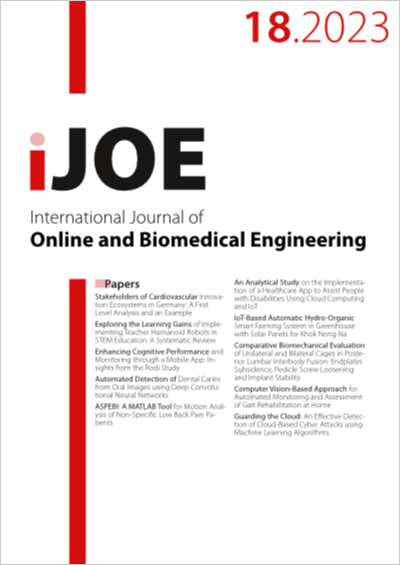Enhancing Cognitive Performance and Monitoring through a Mobile App: Insights from the Rodi Study
DOI:
https://doi.org/10.3991/ijoe.v19i18.44879Keywords:
cognitive decline, mHealth app, cognitive training, cognitive monitoringAbstract
The prevalence of neurocognitive disorders has led to increased interest in mobile health applications (mHealth apps) for detection and training. However, there’s a need for apps that integrate comprehensive cognitive training, assessment, and monitoring in personalized contexts. The RODI app was meticulously developed with the objective of catering to individuals with deficits as well as healthy adults. In this study, 11 participants without diagnosed impairments used the app twice weekly for eight weeks. Results show a consistent enhancement in cognitive performance within the app over time. Notably, a discernible divergence is observed, with the rate of improvement appearing to be comparatively slower in the younger age group in contrast to their older counterparts. Furthermore, the study assesses the reliability of the application using the intraclass correlation coefficient (ICC), confirming its consistent performance across repeated administrations. Finally, the app’s capacity to monitor participants’ cognitive status across various domains is investigated, unveiling controlled variations that indicate foreseeable outcomes within defined parameters. These findings underscore RODI’s potential for cognitive enhancement and monitoring, offering insights into user needs and the broader significance of mobile app interventions for cognitive well-being and future research in this field.
Downloads
Published
How to Cite
Issue
Section
License
Copyright (c) 2023 Panagiota Giannopoulou, Panayiotis Vlamos, Mary-Angela Papalaskari

This work is licensed under a Creative Commons Attribution 4.0 International License.



